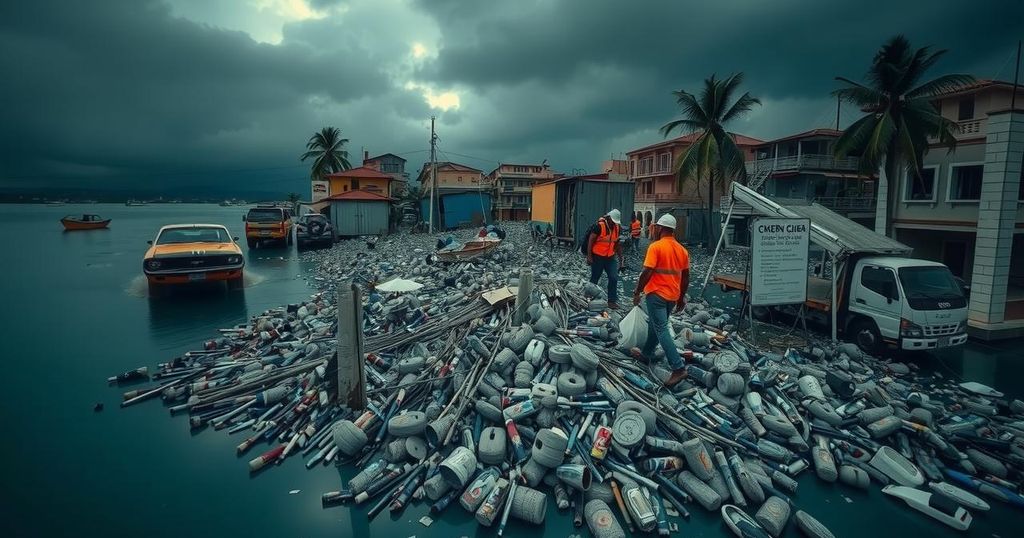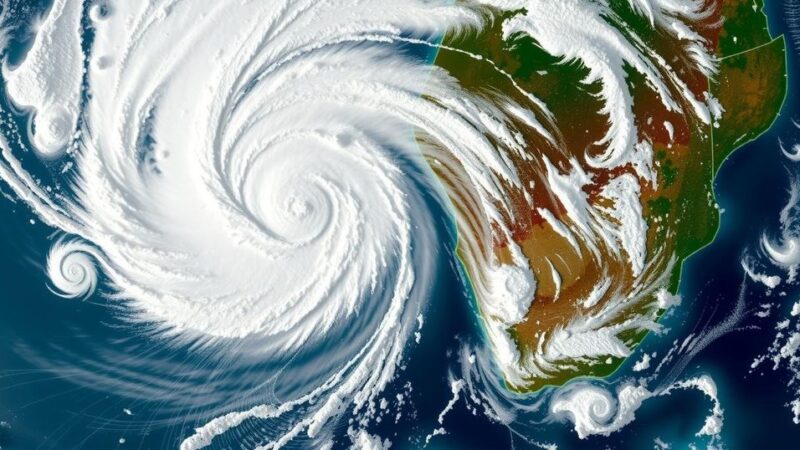On Sunday, a 6.8 magnitude earthquake struck eastern Cuba following a series of hurricanes and extensive power blackouts. The quake’s epicenter was located near Bartolomé Masó, affecting cities including Santiago de Cuba, where residents reported feeling the tremors. Fortunately, there were no immediate reports of injuries or damage. This event added to the struggles facing Cuba amidst growing dissatisfaction among residents over ongoing energy crises and recent natural disasters.
On Sunday, eastern Cuba experienced a significant 6.8 magnitude earthquake, a troubling development that occurred in the aftermath of a series of hurricanes and extensive power blackouts on the island. The earthquake’s epicenter was approximately 25 miles south of Bartolomé Masó, as reported by the United States Geological Survey. Citizens across eastern Cuba, notably in Santiago de Cuba, reported feeling the tremors, prompting many to vacate their homes in search of safety. Thankfully, there were no immediate reports of casualties or structural damage following the quake. Residents in Santiago expressed their unease as they recounted the event. Yolanda Tabío, age 76, noted that many in the city rushed outdoors, continuing to anxiously linger at their doorways after the quake. She recounted, “You had to see how everything was moving, the walls, everything,” while also mentioning that she had felt at least two aftershocks. This earthquake has compounded the struggles facing Cuba, which is currently grappling with the aftermath of natural disasters. Just days prior, a Category 3 Hurricane Rafael had devastated western Cuba, resulting in widespread power outages, the destruction of numerous homes, and the evacuation of hundreds of thousands of residents. Moreover, the island had previously endured considerable hardships, including extensive blackouts linked to an ongoing energy crisis that has heightened public dissatisfaction and led to small protests across the nation. The earthquakes and hurricanes represent a culmination of challenges that have affected the Cuban population, already reeling from cautious coping mechanisms amid their economic troubles.
Cuba has been enduring a sequence of serious environmental and infrastructural challenges. Recent hurricanes, including the recent Hurricane Rafael, have wreaked havoc on the island, resulting in significant property loss and power outages. The persistent blackouts have been attributed to an ongoing energy crisis facing Cuba, which has exacerbated public grievances and led to protests across the island. The natural disasters, coupled with socio-economic issues, create a volatile situation for the residents of Cuba.
In summary, the recent 6.8 magnitude earthquake in eastern Cuba added new turmoil to an already beleaguered region confronting the aftereffects of natural calamities and systemic energy crises. While the immediate aftermath did not report injuries or damages, the emotional toll on residents is evident as they navigate ongoing challenges. The situation in Cuba underscores the fragility of communities contending with multiple adversities, both from nature and internal systemic issues.
Original Source: www.cbsnews.com







